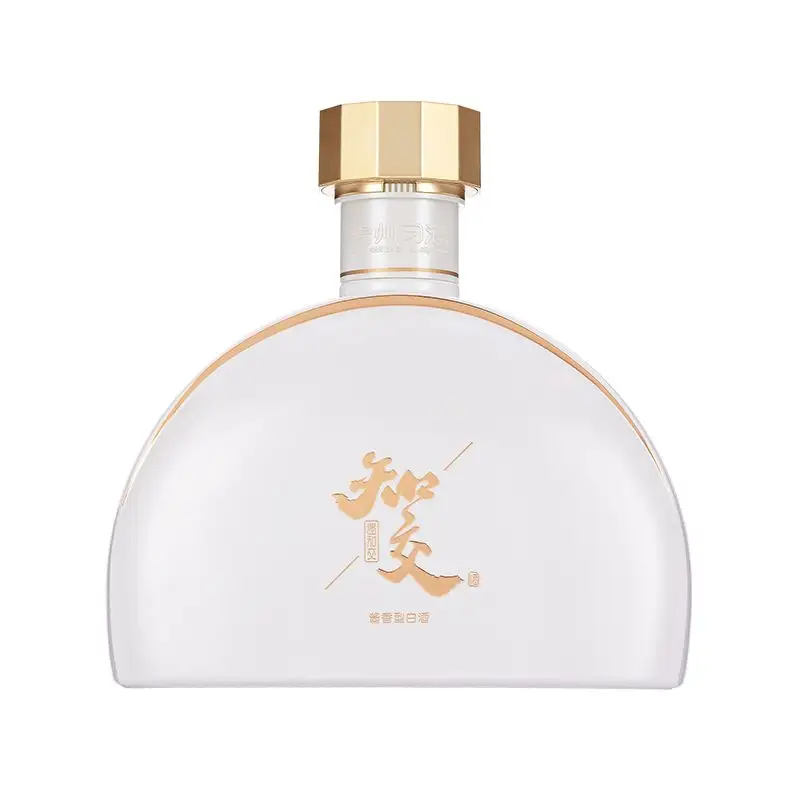
Baijiu is an ancient Chinese alcohol with a long history. Guizhou Xijiu has a lot of different kinds of baijiu, and it is a perfect example to show the unique brewing tradition and cultural heritage in this area. The paper will track back the historical development of Guizhou Xijiu, including its origin, evolution and cultural implication in China.
Origin and Early History
Guizhou Xijiu can be dated from Tang Dynasty (618-907 AD), when Guiyang area was marked by rich natural resources as well as favorable climate for brewing. People there started attempts on various grains, fermenting methods and distilling techniques which eventually led to their mastering of making baijiu with time passing down such skills from one generation after another until today’s recognizable flavor profile and production process adopted by Guizhou Xijiu are formed.
Evolution and Extension
From Ming to Qing Dynasty (1368-1912), the production scale of Guizhou Xijiu expanded quickly with many small-scale workshops arising all over the province while it was gaining popularity among local residents who began distributing them outside Guizhou while contacts among different regions grew closer thanks to the opening trade routes coupled better communication means what made this wine even reach Beijing where used be known as Dadu or northern capital city during Yuan Period.
Cultural Significance
Guizhou Xijiu has been deeply rooted into Chinese culture especially in southwestern parts which gave birth to it originally. It is frequently offered at important social events like weddings, funerals or festivals since people consider it symbolizes warm reception toward guests besides showing kindness towards others around them too. Moreover, consumption habits regarding this drink are closely related not only with local cuisine but also national dishes created specially so that they could go well together along unique tastes offered by baijius.

Guizhou Xijiu Co., Ltd. is a holding subsidiary of Guizhou Xijiu Investment Holding Group Co., Ltd., formerly known as Yin liquor workshop during the Wanli period of the Ming Dynasty. The headquarters is located in the middle reaches of the Chishui River in the North Guizhou Plateau, the Red Army Long March "four cross Chishui" Erlang Tan crossing, near the mountains and by the water, the beautiful scenery, the enterprise covers an area of nearly 6,000 mu, with more than 15,000 employees.
While we adhere to traditional craftsmanship, we continue to innovate technology to ensure that every bottle of Xijiu carries the essence of history and the spirit of modern innovation.
The advantage of our products lies in the strict quality control process. From material selection to brewing to packaging, every link strives for perfection to ensure that consumers can enjoy the highest quality Guizhou Xijiu.
We are committed to sustainability and use environmentally friendly production methods to reduce environmental impact while maintaining high standards of product quality.
Our product line is rich and diverse to meet the tastes and needs of different consumers. Whether it is classic or limited edition, there is always one that suits you.
Chinese liquor originates from the ancient civilization of China, with historical records dating back over 5,000 years. It is believed that the earliest forms of distilled spirits were developed in China, evolving from fermented alcoholic beverages such as rice wine. Over time, various regions in China have developed their own distinctive styles and flavors, including baijiu, which is the most consumed spirit in the country.
Chinese liquor, particularly baijiu, is traditionally produced using a process called "solid-state fermentation," which involves mixing grain with water and yeast to allow fermentation. The grains used can vary but often include sorghum, wheat, barley, or rice. After fermentation, the mixture is distilled to concentrate the alcohol content. Some types of Chinese liquor may also undergo aging in clay pots or other containers to mellow the flavor and aroma.
Chinese liquor holds significant cultural importance in China, serving as a staple at social gatherings, business dinners, and special occasions. It is often used as a symbol of hospitality and respect, and sharing drinks is a common way to build rapport and strengthen social bonds. Chinese New Year and other festivals are times when drinking becomes particularly festive.
